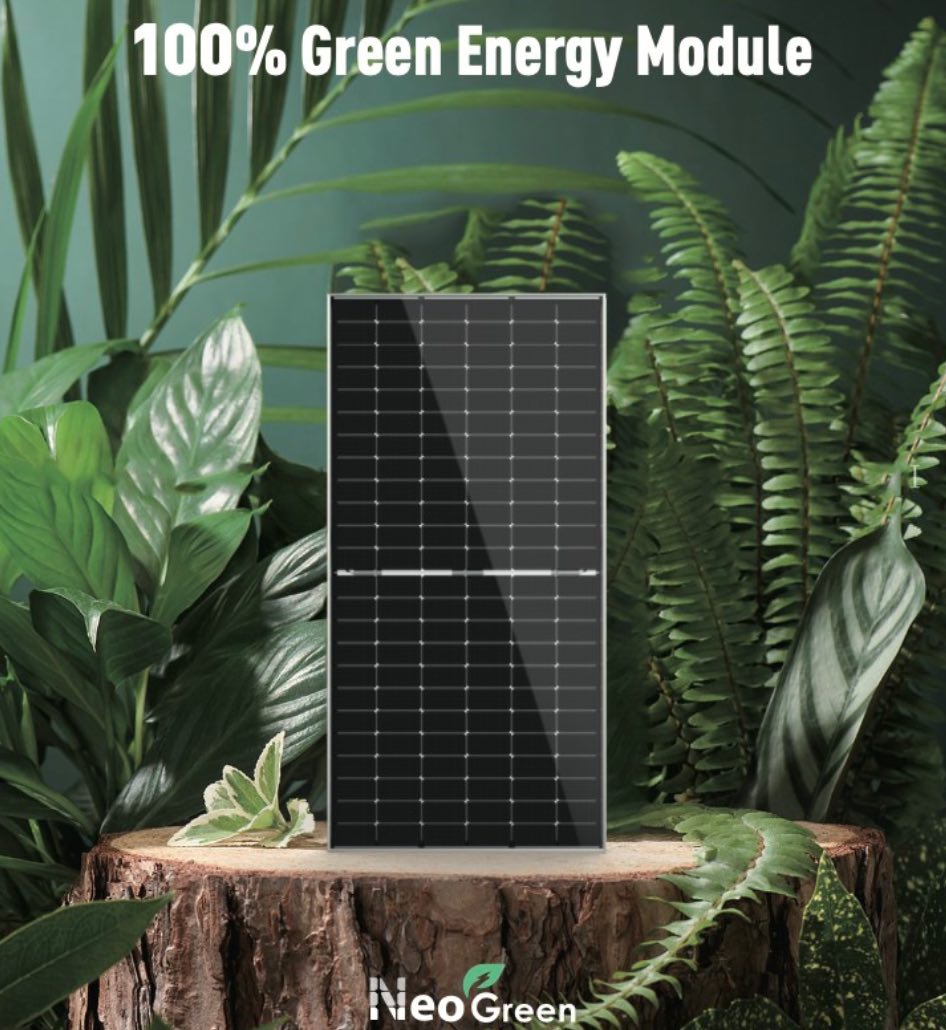

Image: Facebook
One of the world’s largest PV module manufacturers, Chinese giant JinkoSolar, says the first of its Neo Green panels – made in “Zero Carbon Factory” certified facilities – have rolled off the production line.
JinkoSolar announced back in 2019 that it was joining the global RE100 initiative with a pledge to source 70 per cent of its electricity needs from renewable energy sources by 2023, and 100 per cent by 2025.
The company has not revealed whether it managed to reach its target of a 70 per cent renewable energy mix, but in late February JinkoSolar unveiled the first Neo Green solar panels produced with renewable energy.
The Neo Green solar panels are JinkoSolar’s N-type TOPCon Tiger Neo panels which are produced in factories awarded the “Zero Carbon Factory” certification by German quality assurance and testing group TÜV Rheinland.
JinkoSolar’s Tiger Neo panels offer 635W of power with an impressive 23.23% efficiency and maximum bifaciality of 85%.
JinkoSolar is also the first company in the industry to be awarded with the “Zero Carbon Factory” certification by TÜV Rheinland for silicon ingot manufacturing, silicon wafer cutting, solar cell manufacturing, and solar module manufacturing.
Initial annual production capacity for the Neo Green panels sits at 5GW and relies on solar, hydro, and wind energy generation for its wafer, cell, and module factories in Leshan, Chuxiong, and Shangrao.
Further, JinkoSolar has committed to expand the use of recycled materials in its manufacturing process while increasing the use of electric trucks and ships fuelled by liquid natural gas. JinkoSolar has also targeted the gradual reduction of plastic in its packaging.
“We are extremely proud to release our first Neo Green Panels produced in factories that use electricity from renewable sources, a strong expression of our efforts to fulfill our commitment to sustainability,” said Dany Qian, global vice president of JinkoSolar.
“Our biggest impact on the environment will always come from providing customers with sustainable products and solutions that accelerate a greener future, reflecting the shared values of our customers, partners and investors.”
This post was published on April 12, 2024 12:33 pm
Australian hardware and garden store giant says it has reached 100 per cent renewables, with…
Data used to showcase the downward impact of renewable energy on power prices contained a…
Most so-called ‘community batteries’ are actually installed by electricity networks, but this local group managed…
Rising energy bills are driving a surge in complaints. The NSW Energy Ombudsman wants better…
Australians are often being misled when they try to make sustainable electrical appliance choices, and…
China EV giant bows to trend of offering "complete solutions" for home energy, with launch…